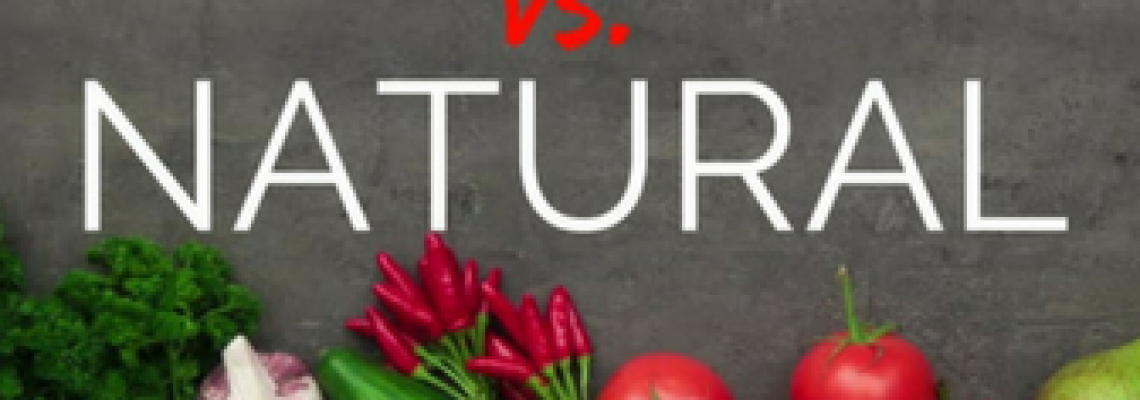
ORGANIC VERSUS NATURAL FOODS – THE LABELLING AND REGULATION CONTROVERSY
An interesting article about Food Labelling Regulations here in New Zealand, published by Ceres Organics.
Posted on March 28, 2018 by Tracey Creed - find original article here
Organic versus natural foods, the labelling and regulation controversy you need to know about to be sure you’re getting what you pay for! Food labels are meant to empower us to make more informed decisions about the food we buy. We want to know where our food comes from – yet country of origin labelling is still voluntary, what’s in or food – and not in our food.
Clean labels are a thing and yet lack of government regulation has created ‘a somewhat murky environment’ for food labelling. In particular use of the terms ‘organic’, ‘certified organic’ and the highly ambiguous ‘natural’.
With no government oversight of organic standards, and no national standard to protect the word ‘organic’ either here or in Australia, the integrity of the organic industry as a whole is compromised. Bottom line: there’s some shady activity behind a lot of food labels.
New Zealand and Australia are one of the few countries in the world without regulation protecting the use of the term ‘organic’ and a supporting national organic standard. Eighty-seven other countries do. And yet loads of us take our labels very seriously.
Concerned about the long-term health impact of artificial ingredients, 54% of us want to avoid artificial preservatives and sweeteners, colours, flavours – basically anything artificial. And yet our food labelling framework does not support this shift in our demand for greater transparency.
Organic certification
Organic certification by an accredited independent body is an internationally recognised set of requirements. And it’s traceable. There are presently two main certifying bodies here in New Zealand – BioGro and AsureQuality, and seven approved certifying organisations in Australia. Our preferred certifier is BioGro, you’ll find us here.
The vagueness of the term ‘natural’ and food labelling
Then there’s the issue of the rather vague term ‘natural’. The term is often assumed to imply foods that are not processed and whose ingredients are natural products – well in a chemist’s sense anyway, thus conveying an appeal to nature.
The Australia and New Zealand Food Standards Code does not define ‘natural’, nor does it provide any regulation of misleading and deceptive representations on food product labels. All that leaves us with the precarious protection of the Fair Trading Act 1986 and over in Australia, the Trade Practices Act 1974.
The FDA attempted to define natural back in 1991, but after two years decided it was too hard basket, with one FDA official stating “it’s too complex,”. Due to public pressure the FDA revisited the issue in 2016, though no formal definition for the term ‘natural’ was ever established.
This review of ‘natural’ claims on foods, and a pilot study of the views of Australian consumers found consumer expectations about suitable ingredients do not always coincide with current guidelines. Yes it’s confusing!
The authors concluded while definition is necessary, given the lack of consumer consensus, this may be difficult to develop. The FDA would probably agree.
Other countries have however.
And it’s worth expanding on this point. With no legal framework regulating the term ‘natural’, you’ll understand why you see it everywhere. And that’s inherently confusing. Partly because very little about conventional agriculture is ‘natural’. More on this in a bit.
Organic farming versus conventional farming
Perhaps in part this labelling confusion is because of the widespread debate between organic and conventional farming – which tends to focus on food security.
Even the FDA’s policy on the use of the term ‘natural ‘ was never intended to address food production methods, such as the use of pesticides. Because the truth is, those ‘natural’ foods were most probably grown with chemical fertilisers and pesticides.
Historically, conventional agriculture has focused on increasing yields at the expense of sustainability metrics. Conventional agriculture was developed to make farming more efficient – and arguably create a market for chemical fertilisers, but achieves that efficiency at the cost of the environment, society and the economy.
Conventional farming uses synthetic chemicals and fertilisers to maximize the yield of a particular crop or set of crops. This method requires a significant amount of chemical and energy input and weakens the ecology of a landscape, alters the natural environment, deteriorates soil quality, and eliminates biodiversity.
And this rather unnatural method of food production, heavily reliant on synthetic chemical fertilisers and pesticides is not without social and environmental consequences. And as a side note, the global chemical fertiliser market is anticipated to reach around USD150 billion by the end of 2024!
Organic agriculture however takes a more holistic approach to farming than conventional in that it relies on ecological processes, biodiversity and cycles adapted to local conditions. The idea being that organic agriculture sustains the health of our soils, ecosystems and the people.
Another farming aims to produce a number of crops, without the use of synthetic pesticides, herbicides, and fertilisers to produce food. Instead, farmers will plant a variety of plants together to promote biodiversity and ward off pests and pathogens, while enhancing soil composition and promoting biodiversity.
This paper published in Nature examined the performance of organic farming versus conventional in four major areas of sustainability: productivity, environmental impact, economic viability and social wellbeing. It’s worth a read if you’ve got an extra 15 or so minutes, and want to better understand the difference between organic and conventional farming methods.
So, pay attention to your labels to avoid ‘goodwashing’
One would think that government intervention and regulatory reform, defining terms such as ‘organic’ and ‘natural’ would be a priority.
The adoption and implementation of legally enforceable standards would reduce our confusion for one but also prevent fraudulent claims on food labels that continue to be an issue, strengthening the integrity of the organic industry both here and in Australia.
However, with no support for governmental reform of our food labelling laws, it’s critical we check our labels, look for third party certification and are in general – curious.






















